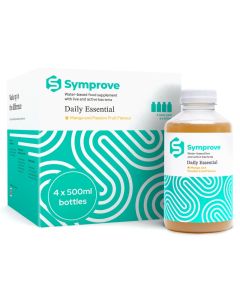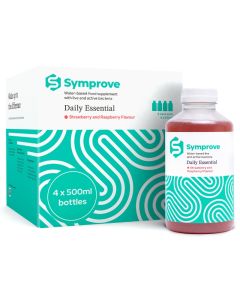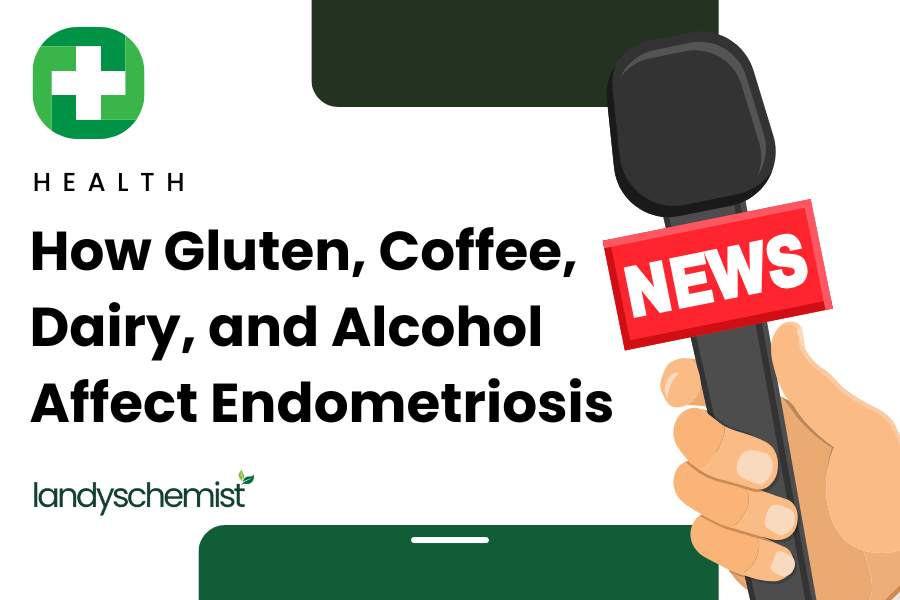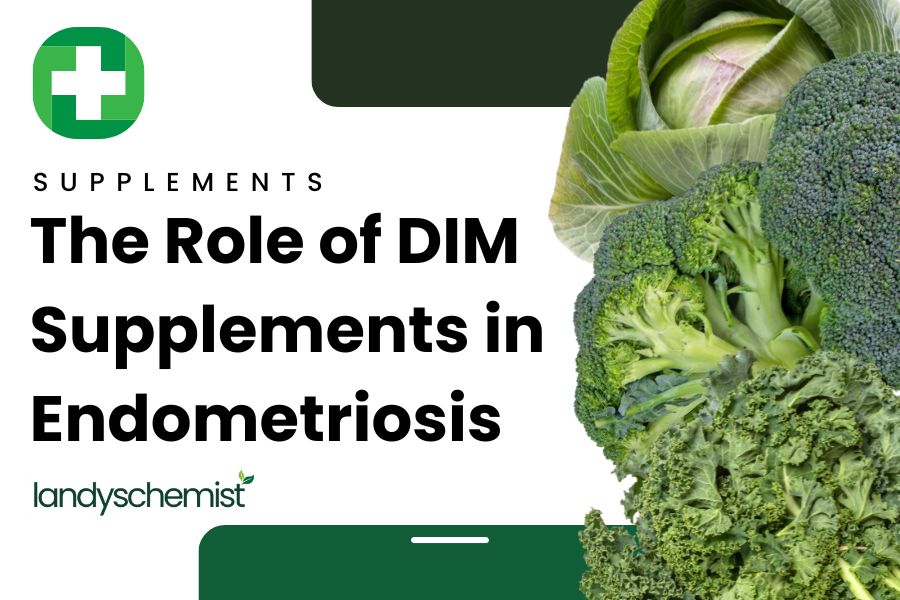
The Connection Between Gut Health and Sleep
Quality sleep is important for our overall health and well-being, impacting cognitive function and mood regulation. Emerging research has been able to link gut health to sleep in various ways. The gut, often dubbed the "second brain," houses trillions of microorganisms known as the gut microbiome and this ecosystem has been closely linked to sleep problems through it's influence on sleep-related hormones melatonin and serotonin.
While the brain's pineal gland traditionally controls sleep through melatonin release, recent research highlights the gut microbiome's role in sleep-wake cycles and sleep quality.
How does poor gut health cause sleep problems?
The gut microbiome influences the production and regulation of serotonin and melatonin, both key hormones related to sleep. Imbalances in gut bacteria, often caused by factors like diet, stress, and medication use, can disrupt the gut microbiome, leading to insomnia, fragmented sleep, or difficulty falling asleep.
The Gut Produces More Melatonin Than The Brain
Traditionally, melatonin, our main sleep hormone, has been associated with the pineal gland in the brain, where it's believed to be primarily synthesised. However, recent research, including one published in The World Journal of Gastroenterology, revealed that the gut contains a significant amount of melatonin—approximately 400 times more than the brain.
The Circadian Rhythm Is Linked To The Gut
The circadian rhythm is the body's internal clock, regulating sleep-wake cycles, hormone secretion, and metabolism. Disruptions to this rhythm, such as irregular sleep patterns, jet lag, or shift work, can affect sleep quality, leaving us fatigued and out of sync.
Melatonin production is closely tied to the circadian rhythm, with levels typically increasing in the evening as darkness falls, signalling the body to prepare for sleep. Interestingly, the gut produces nearly 400 times more melatonin than the brain, highlighting the importance of the gut microbiome for the regulation of our sleep cycles.
Moreover, disruptions to the gut microbiome—caused by factors like antibiotic use, poor dietary and lifestyle choices, or chronic stress—can disturb the body's circadian rhythm and disrupt melatonin production. This highlights the relationship between the gut microbiome and sleep patterns.
Almost 95% of Serotonin Is Produced By The Gut
Serotonin not only regulates mood but also serves as a precursor to melatonin, the hormone that regulates the circadian rhythm (sleep-wake cycle).
Approximately 95% of the body's serotonin, the "feel-good" neurotransmitter, is produced by the gut, far more than the brain produces.
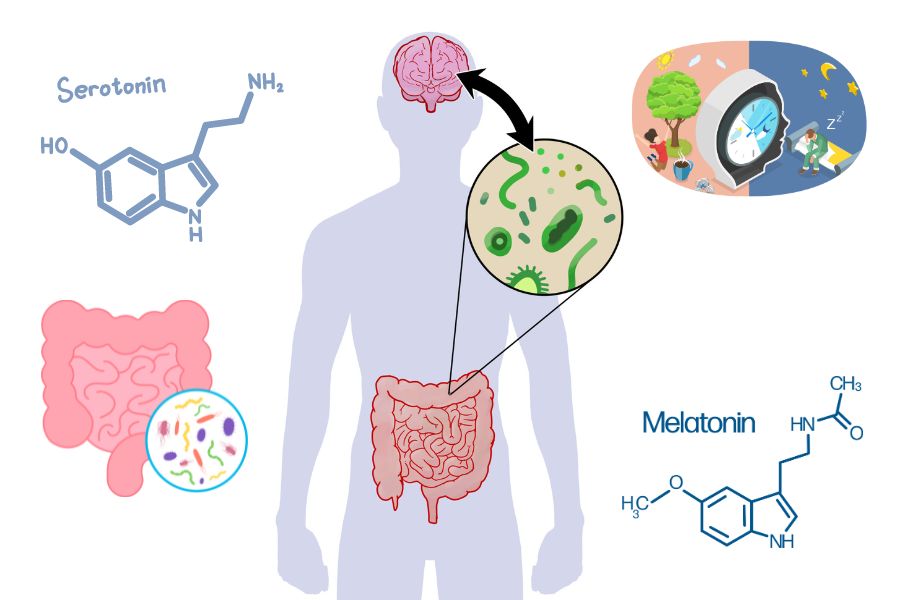
How To Restore Your Gut Microbiome
- Avoid inflammatory foods: Eliminate or restrict foods such as excess sugar, refined sugars, gluten, fried, and processed foods from your diet. It is also important to identify and remove food allergies and sensitivities to prevent gut irritation.
- Eliminate unhealthy bacteria, yeast, and toxins by avoiding foods or environments that promote their growth, through improved diet and exercise.
- Incorporate foods rich in good amino acids and proteins to support gut health and tissue repair such as poultry, eggs, greek yoghurt, quinoa, soy, and protein-rich vegetables like spinach and broccoli.
- Repair the gut microbiome with well-formulated, and trusted probiotics, such as Symprove, to replenish good bacteria. It is important that you find probiotics that can survive stomach acid and populate the gut microbiome as many probiotics can fail to do so, having minimal impact on gut health.
Choosing the right probiotic for better sleep:
Probiotics have gained recognition for their role in promoting gut health, but their benefits extend beyond digestion. Symprove stands out as a leading probiotic supplement, uniquely formulated to support better sleep.
- Unique water-based formulation ensures maximum survivability and effectiveness of live bacteria.
- Clinically proven to promote gut health and overall well-being.
- Targets balanced gut microbiome crucial for regulating sleep quality.
- Offers comprehensive support, addressing inflammation, dysbiosis, and digestive discomfort.
- Trusted brand recommended by healthcare professionals for better sleep through gut health optimisation.
FAQs
Can gut bacteria cause insomnia?
Gut bacteria can influence sleep quality, influencing or worsening insomnia. This is because disruptions in the gut microbiome may contribute to factors like inflammation or serotonin imbalance, affecting sleep patterns.
Can probiotics help you sleep better?
Probiotics can potentially support better sleep indirectly by promoting a healthy gut microbiome, which influences factors like neurotransmitter production and inflammation regulation, both of which can impact sleep quality.
When is it best to take probiotics for better sleep?
The best time to take probiotics for better sleep may vary depending on individual preferences and schedules. Some people find it beneficial to take probiotics with meals to enhance absorption, while others prefer taking them before bedtime. Ultimately, consistency in taking probiotics daily is key for long-term gut health and potential sleep benefits.
Can gut issues make you sleepy?
Yes, gut issues can contribute to feelings of fatigue and sleepiness. Digestive problems such as bloating, discomfort, or inflammation can disrupt sleep patterns and lead to daytime drowsiness. Additionally, imbalances in the gut microbiome may affect neurotransmitter production and hormone regulation, further impacting energy levels and sleep quality.
Is irregular sleep bad for your gut?
Yes, irregular sleep patterns can negatively affect your gut health. Research suggests that disruptions to the sleep-wake cycle, such as irregular sleep schedules or insufficient sleep, can alter the composition of the gut microbiome and increase inflammation in the gut.
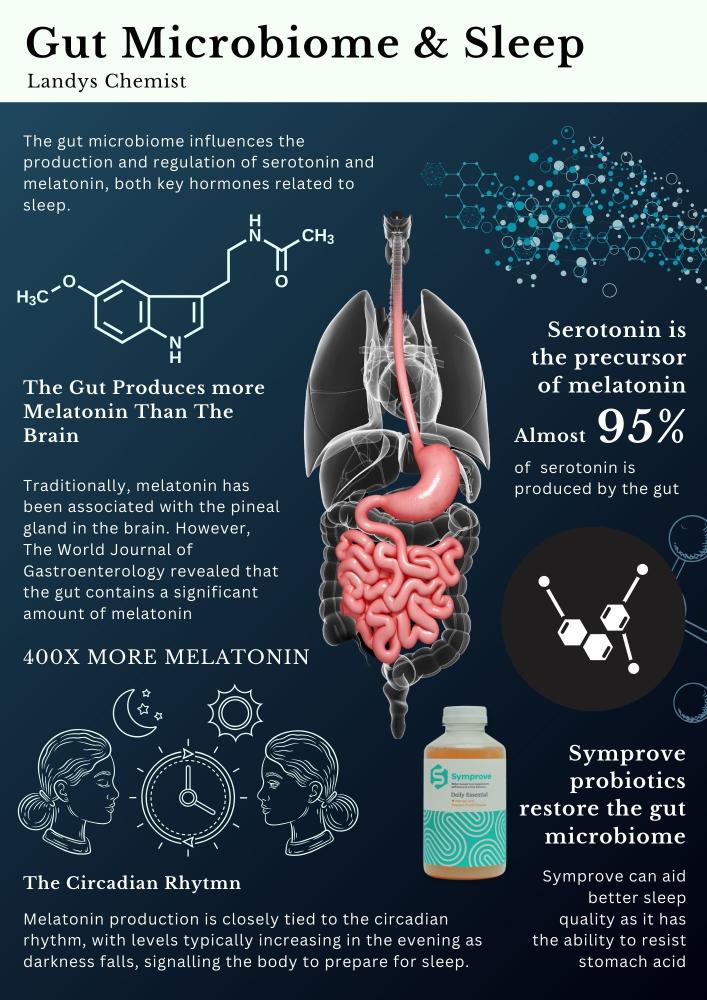
By Rhysa Phommachanh, BA (hons) Specialist Hair and Media Make-up

